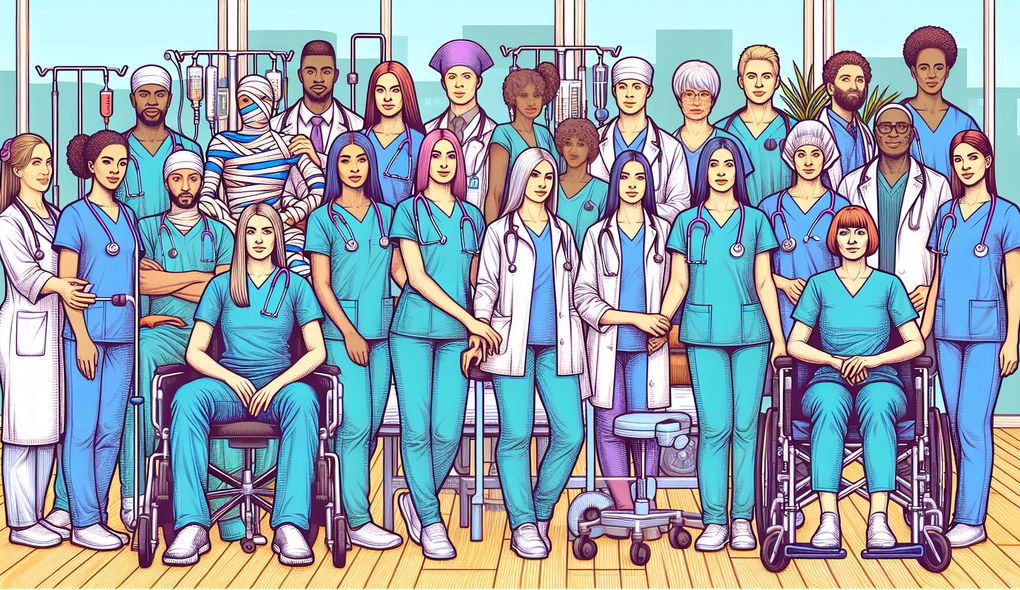What strategies do you use to effectively communicate with patients and their families?
INTERMEDIATE LEVEL

Sample answer to the question:
To effectively communicate with patients and their families, I employ a range of strategies. Firstly, I believe in active listening, taking the time to understand their concerns and needs. I offer clear and concise information, using language that is easy to understand. I provide regular updates on their treatment progress, ensuring they are well-informed and involved in decision-making. I also emphasize empathy and compassion, making them feel heard and supported. Additionally, I utilize visual aids, such as diagrams or charts, to enhance understanding. Lastly, I encourage open and honest communication, creating a safe space for patients and their families to express any concerns or questions.
Here is a more solid answer:
To effectively communicate with patients and their families, I employ a range of strategies that have been successful in my previous roles as a Rehabilitation Nurse Practitioner. Firstly, active listening is key to understanding their concerns and needs. I make sure to give them my full attention, maintain eye contact, and ask clarifying questions to ensure comprehension. Secondly, I provide clear and concise information, using language that is easily understandable, avoiding medical jargon. I also utilize visual aids, such as diagrams or charts, to enhance understanding. Thirdly, I emphasize empathy and compassion, making patients and their families feel heard and supported. I take the time to acknowledge their emotions and validate their experiences. Additionally, I offer regular updates on their treatment progress, ensuring they are well-informed and involved in decision-making. Lastly, I create a safe space for open and honest communication, encouraging patients and their families to express any concerns or questions without judgment. These strategies have proven effective in establishing trust and fostering positive relationships.
Why is this a more solid answer?
The solid answer expands on the basic answer by providing specific examples and details to demonstrate the candidate's experience and expertise in using the strategies mentioned. It mentions active listening techniques such as maintaining eye contact and asking clarifying questions. It also highlights the importance of providing clear and concise information, utilizing visual aids, demonstrating empathy and compassion, and creating a safe space for open communication. The answer showcases the candidate's ability to establish trust and foster positive relationships with patients and their families. However, it could benefit from providing more specific examples or anecdotes from past experiences to further strengthen the answer.
An example of a exceptional answer:
To effectively communicate with patients and their families, I have developed a comprehensive approach that encompasses various strategies and techniques. Firstly, active listening is the cornerstone of my communication style. I take the time to fully understand patients' and families' concerns and needs, ensuring they feel heard and validated. I employ techniques such as reflective listening and summarization to demonstrate my understanding. Secondly, I practice clear and concise communication by using language that is easily understandable and avoiding medical jargon. I also utilize visual aids and models to enhance comprehension and facilitate discussions. Thirdly, I prioritize empathy and compassion in my interactions. I connect with patients and families on an emotional level, acknowledging their fears and anxieties, and providing reassurance and support throughout their healthcare journey. Additionally, I believe in the power of collaboration and teamwork. I work closely with other healthcare professionals, such as therapists and physicians, to coordinate patient care and ensure consistent communication. Lastly, I proactively provide regular updates on patients' progress and involve them in the decision-making process, empowering them to actively participate in their own care. These strategies have resulted in improved patient satisfaction, increased compliance with treatment plans, and stronger bonds with patients and their families.
Why is this an exceptional answer?
The exceptional answer provides a comprehensive and well-rounded approach to effectively communicate with patients and their families. It goes beyond the basic and solid answers by introducing techniques such as reflective listening and summarization, and highlighting the importance of collaboration and involving patients in decision-making. The answer demonstrates the candidate's extensive experience and expertise in using these strategies, resulting in tangible outcomes such as improved patient satisfaction and increased compliance with treatment plans. The answer effectively aligns with the job description's emphasis on strong communication and interpersonal skills, as well as a patient-centered approach to care. It showcases the candidate as an exceptional communicator who can effectively engage and support patients and their families. However, the answer could further improve by providing specific examples or anecdotes to illustrate the successful application of these strategies in past experiences.
How to prepare for this question:
- Reflect on past experiences where effective communication with patients and their families was crucial. Think about specific situations and how you approached them.
- Familiarize yourself with different communication techniques, such as active listening, clear and concise communication, empathy, and collaboration.
- Practice using non-medical language to explain complex medical concepts and procedures. This will help ensure that patients and their families can easily understand and participate in their care.
- Consider situations where conflicts or challenging conversations may arise and prepare strategies for managing them with empathy and professionalism.
- Seek feedback from colleagues or mentors on your communication skills and areas for improvement. Actively work on enhancing these skills through continuous learning and development.
What are interviewers evaluating with this question?
- Communication Skills
- Interpersonal Skills
- Patient-Centered Approach
- Collaboration

